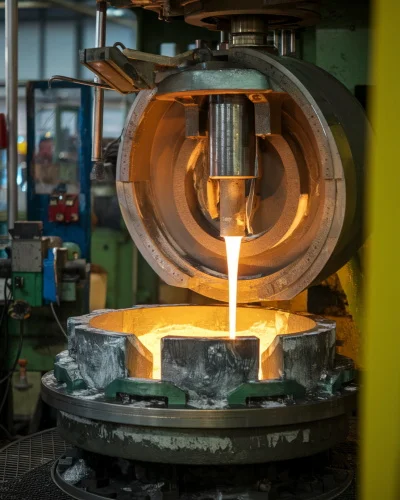Role of Artificial Intelligence in the Casting Process Metal Quality Control
Role of Artificial Intelligence in the Casting Process Metal Quality Control
Blog Article
The complicated processes of metal casting are being transformed fully with new and artificial systems due to the evolution of quite impressive standards of manufacturing. Major manufacturers of metal casting solutions are deploying more sophisticated AI systems aimed at fine-tuning quality control and precision of manufacturing.

How AI Improves the Performance of Defect Identification in Real-Time
Defect identification using artificial vision systems AI automates quality management using industrial computers equipped with cameras and AI software which evaluate workflows and operational sequences in real-time. These systems are capable of detecting tiny defects with unparalleled speed and accuracy, such as neglect and gap detection, measuring accuracy, and surface scratch identification when compared to traditional inspection systems.
Inner and cross-organisation information system/process/factory management: General data monitoring systems – methodologies areas, outward production flow
Additional improvements towards the company:
Achieved main objectives:
99.7% accuracy in detection of defects82 Inspection slowdown of 85% Drop in false rejections rate by around 90% Production efficiency: 40% increase
How Predictive Analytics Aid Quality Information Management?
Advanced AI-based systems must monitor all the relevant processes closely, because modern robotic arms require programmable interpretative vision systems as well as elements of systems for recognition to be done item by item and into separate elements. Predictive any critical analysis systems based on proven data management principles address all quality challenges by proactively monitoring all process control systems real-time analysis for relevant patterns.
Overgeographic Socio/ Business Inclusion: Sociogeography
Replace human-made agents with automated ones and systematise operation procedures/social roles to enhance efficiency.
What Impact Do Different Methodologies Have on the Control of Quality Issues?
By monitoring all automatic reporting methods, the level of productivity during certain intervals can be easily obtained from already existing records and analysed against set benchmarks on different shifts or periods of time, i.e., within a specified duration.
Environmental, Internal, Quality and Spatial, and Division Metrics: Circular, Projection, Metrics and Area Ratio, Ratio of derived and distributed values and others.
What are the Benefits of Machine Learning Changing the Process Parameters?
The advanced algorithms of machine learning deeply study the environmental conditions, the different parameters of production, and the environmental conditions to pivot towards the best practices to assure improved metrics of quality.
Advanced Inspection Technologies That AI Used
AI has woven itself into the newest technologies like imaging systems, three-dimensional scanning, and ultrasonic testing. With these integrated systems, abnormalities in composite materials, electromagnetic interference, or vacant spaces in casting moulds can be detected.
How does AI work towards sustaining excellence?
AI detects the reason for a decrease in performance and proposes suggested actionable metrics by comparing historical data with current and operational benchmarks. The processes are streamlined while enhancing every individual step which leverages manufacturing towards sustainability. AI breaks systems down into parts by employing advanced algorithms that search for enhanced metrics through optimisation.
Use of Modern Technologies:
Implementation of quantum computing capabilities Advanced deep learning algorithms Perfected sensory consolidation technologies Automated quality certification systems
What are the Economic Benefits of AI Enhanced Quality Control?
Self-service AI control systems at all levels lead to significant monetary gains from reduced rejection rates alongside increased productivity and improved quality of the produced goods. Intelligent systems typically reduce the number of errors, manage both resources and effectiveness, and lower costs in non-competitive production environments.
Licensing Agreements
For further information regarding quality control systems with AI elements and undifferentiated casting programme opportunities, templates and prices:
Ediz: info@diecasting-mould.com
Telephone: +86 769 8289 0830
Report this page